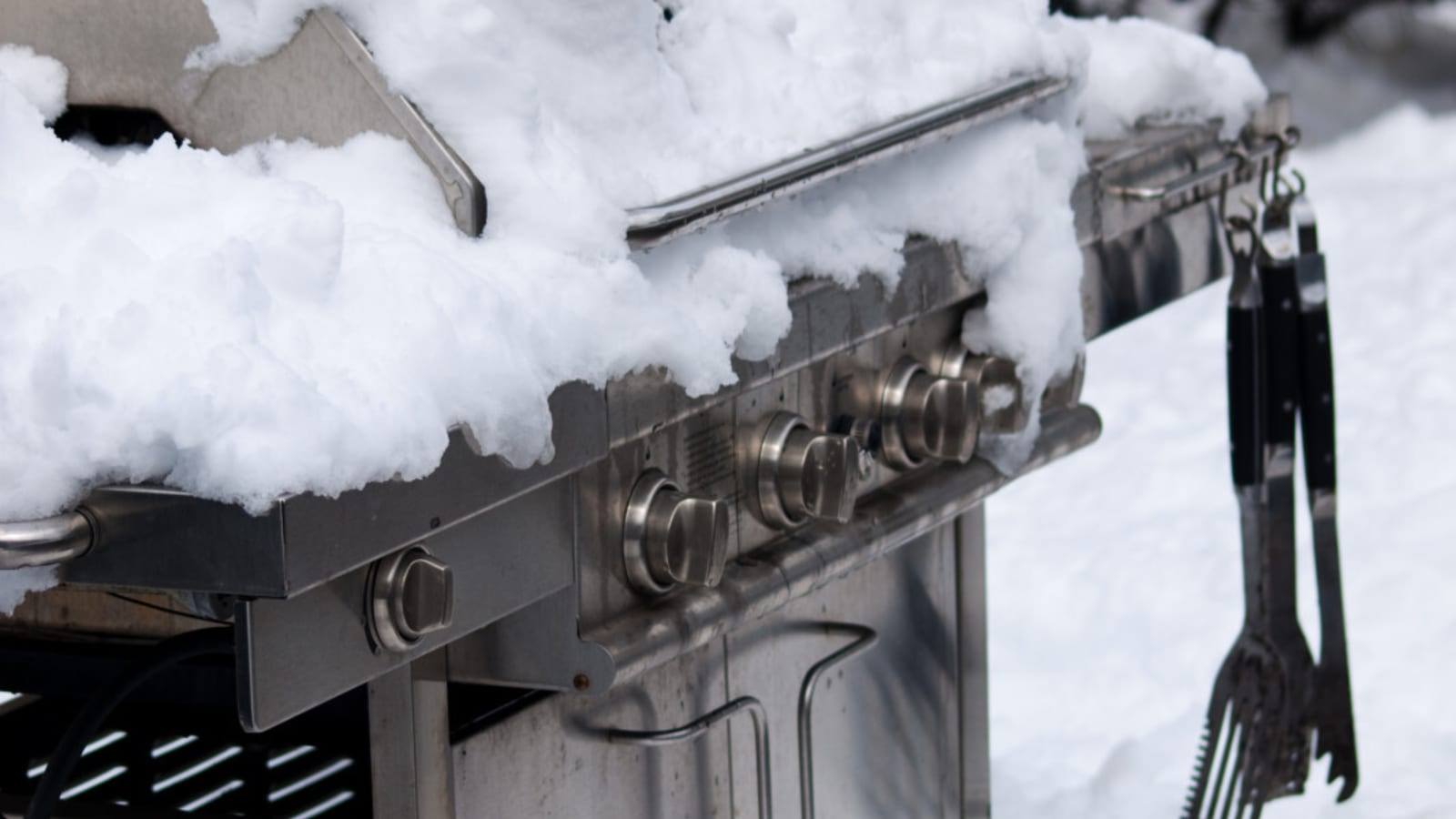
With chilly weather settling in, it’s the perfect time to think about how to care for all those outdoor items powered by propane. Fire pits, grills, patio heaters—they keep us cozy through chilly evenings, even as the temperatures drop. But propane, like all fuel sources, reacts to cold weather in ways that can impact performance and safety. It's important to properly manage propane tanks during cold weather, including when to store them, how to keep them working, and the best way to prep them for winter.
How does temperature affect a propane tank?
Propane is a highly efficient fuel, but it doesn’t love extreme cold. The magic of propane lies in its ability to turn from liquid to a gaseous form, which happens when pressure drops inside the tank as you release fuel; however, as you can see on the tank gauge, when the temperature dips, so does the pressure in the tank. This means that in really cold weather, there is a loss of pressure and your propane-powered items might not work at optimal performance—or at all.
Around 40°F, propane pressure can begin to weaken. This isn’t usually an issue for moderate winter days, but as the temperature continues to plummet, your appliances may struggle or even fail to ignite because the liquid propane can’t convert into gas at a sufficient rate. This is most noticeable with devices like outdoor heaters or grills that need a steady fuel propane supply.
How cold is too cold?
The cold threshold for propane is about -44°F. You won't worry about propane freezing, but with very cold weather, the propane remains in liquid form and cannot vaporize to power your appliances. But remember, we’re talking pretty extreme temperatures here! In general, only when the thermometer hits the single digits and you have substantial snow buildup might you start to notice a reduced performance with your propane appliances.
For most areas, the main challenge isn’t the propane tank freezing, but the efficiency drop-off due to low pressure. If you live in a place where winter dips into the negatives for an extended period, you might want to consider storing your tank in a warmer environment. If you’re not planning to use it for a few months, it’s probably best to store it safely out of the elements.
How to Safely Store a Propane Tank for the Winter
- Disconnect - Whenever a grill is being stored away from harsh weather, disconnect the gas supply. Check the valves and close it tightly closed to avoid any residual propane leaking into storage areas.
- Find a cool, well-ventilated area – Avoid storing tanks in enclosed areas like garages, especially if they’re attached to your house. A shed or detached garage is ideal to prevent accidental leaks from entering living spaces.
- Place tanks upright – Always store propane tanks upright on a flat, secure surface. Laying a tank on its side can lead to leaks and may interfere with the pressure release valve.
- Use a tank cover – If storing outside, consider using an insulated blanket cover made specifically for propane tanks to keep them dry and protected from ice and snow.
- Clean – Disconnect the connector hose from any appliance and give it a quick wipe down. You can have your propane supplier top them up just in case you do need them during the winter months.
- Store away from heat sources – Keep tanks away from any direct heat source or flames, even if they’re stored outside.
- Refill - If your rely on propane from a large permanent tank, check your propane levels and have them refilled before frigid temperatures arrive.
More must-reads:
- Jose Mourinho returns to Benfica: A full circle moment for the 'Dark Lord of Football'
- Scout identifies key issue behind Arch Manning's underwhelming start
- The 'Switch-hitter single-season HR leaders' quiz
Breaking News
Trending News
Customize Your Newsletter
 +
+
Get the latest news and rumors, customized to your favorite sports and teams. Emailed daily. Always free!








